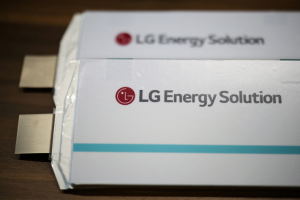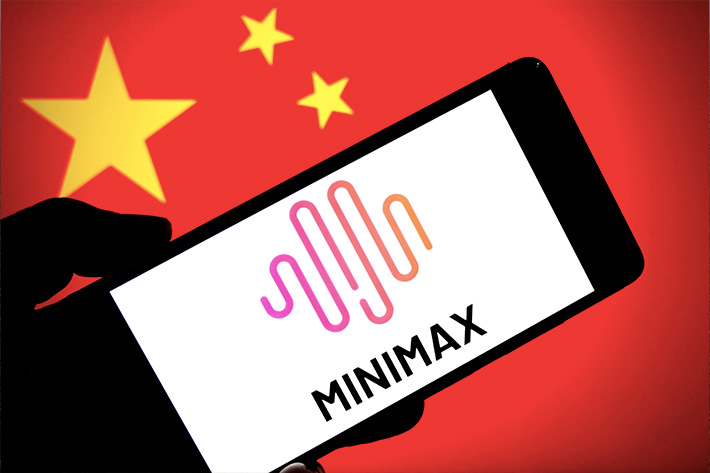Chinese electric vehicle giant BYD is having a bumper 2025.
In China, it has cemented its lead as a top EV brand choice. Meanwhile, in Europe, it sold more electric vehicles than its key rival Tesla last month for the first time.
The “watershed moment” was made possible partly due to increasing angst in the region against the American automaker due to a political backlash against its chief Elon Musk. Tesla’s sales in Europe slumped by 49% according to data from the European Automobile Manufacturers’ Association.
Also on AF: Shein Dumps London IPO, ‘Now Eyeing Hong Kong Listing’
But it also spoke to BYD’s significant advances in selling electric vehicles worldwide. In the first quarter of the year, the carmaker sold nearly one million New Energy Vehicles (NEVs), making a near 60% jump in sales.
On those, battery EV sales stood upwards of 400,000, giving the carmaker a more than 15% share of global BEV sales.
BYD’s exports also jumped 111% to a new record high, while its net profit more than doubled for the quarter.
Those advances have allowed BYD to continue selling electric vehicles at steep discounts.
On Monday, the carmaker announced fresh discounts across more than a dozen models. That included a more than 22% cut on the starting price of its cheapest model, the battery-powered Seagull hatchback, to 55,800 yuan ($7,765), from nearly $10,000.
BYD’s price cuts, along with other developments, signal a potential tipping point, where weaker players can no longer sustain deepening losses from the downward spiral on prices.
“This points to a bloodbath later this year,” Tu Le, managing director of advisory firm Sino Auto Insights, told Reuters.
“This could be the first domino that would finally put pressure on weaker players — startups like Neta and Polestar — that have been teetering,” he added.
Worry all around
Even bigger carmakers competing with BYD are concerned about the potential shake-out in the Chinese EV market.
On Friday, the chairman of Great Wall Motors, Wei Jianjun, warned that China’s auto sector was in an unhealthy state, with pricing pressure hammering the bottom lines of car companies and suppliers. He even drew a parallel to Evergrande, the Chinese property developer that was liquidated last year after a major debt crisis.
“Now, Evergrande in the automobile industry already exists, but it has not collapsed,” he told Sina Finance in an interview. Wei did not name any automakers but said some of the “main manufacturers” in China had put too much effort into pursuing market value and raising their stock prices.
In another sign of stress in the market, Chinese commerce regulators are also examining a growing phenomenon that has also strained the industry: sales of “used cars” that are essentially new cars with zero miles. The tactic is seen as a way for automakers and dealers to hit aggressive sales targets, a person familiar with the matter told Reuters.
The Hong Kong-listed shares of BYD are down nearly 12% so far this week, while its rivals Geely Auto, Nio, Xpeng and Leapmotor, have slumped more than 13%, 6%, 10% and 8%, respectively.
The EV gold rush
A slew of startup companies have piled into China’s car market over the past decade, drawn by the burgeoning electric-vehicle sector and Beijing’s billions of dollars worth of backing for the sector.
The rush to make EVs early on was so intense that many high-profile Chinese companies with little or no automotive experience were zooming into the sector, including property group Evergrande, smartphone maker Xiaomi, search engine giant Baidu. At one point even an airline, Juneyao, was planning to venture into EV-making in an attempt to diversify its Covid-hit business.
And the Chinese EV market — the world’s largest — has only become more crowded with cut-throat price competition and most companies sustaining heavy losses.
Of the 169 automakers operating in China today, more than half have less than 0.1% market share, according to data from research firm Jato Dynamics.
In April, one Chinese automotive analyst speaking on a public panel went as far as to warn that even bigger EV startups — Nio, Xpeng and Li Auto — had “zero” chances of surviving independently in the next three years, and that’s if they don’t go bankrupt. He added that any EV maker selling less than 2 million vehicles a year will not survive, as its scale wouldn’t be enough to tackle huge R&D costs.
The crowded field is reminiscent of the US auto sector in the early 20th Century, when more than 100 companies vied with big players such as Ford, before the industry consolidated.
Last week, China’s state planner also cautioned that competition in some industries was getting too heated, with some companies even selling their cars below cost, disrupting fair competition.
Price cuts across the supply chain
Sino Auto Insights’ Le said the price war has lasted roughly three years. Carmakers once enjoyed a premium for advanced features such as driver-assistance systems that take control of steering and braking in certain situations, but now more have been offering these as part of the sticker price.
BYD has already begun offering Tesla-like automated driving features for free.
On Friday, Wei, the Great Wall chairman, warned the prolonged price war was harming the entire automotive supply chain. Some suppliers were struggling to survive and at risk of going under due to the ongoing pressure to lower prices and delayed payments, he said.
He also accused carmakers of cutting corners on safety and reliability.
“Some products have been reduced from 220,000 yuan to 120,000 yuan in the past few years. What kind of industrial products can be reduced by 100,000 yuan and still have quality assurance? Well, this is absolutely impossible,” he said without naming any companies.
Still, predictions of consolidation in China’s car market have gone on for years, but the field has only grown, said Michael Dunne, a consultant who closely follows the China auto industry.
“BYD’s price cuts will drive out some of the weaker players,” he said. “But for every casualty here comes a new Xiaomi or Huawei barreling into the arena.”
- Reuters, with additional editing and inputs from Vishakha Saxena
Also read:
BYD to Offer Tesla-Like Self-Driving Tech in All Models For Free
BYD Promises Driving Range of Over 2000km With New Hybrid Tech
China’s BYD Gaining Greater Sales, May Outsell Ford, Honda
BYD Shares Hit Record on Charging Tech Twice as Fast as Tesla
BYD Owners Not Happy About Free Smart-Driving Rollout
China’s BYD in Talks to Supply Carbon Credits to European Carmakers
BYD Mexico Plant in Limbo as ‘China Fears EV Tech Leaking to US’
Brazil to Fine BYD For Each Worker Found Doing ‘Slave Labour’
BYD Sales Boom in Southeast Asia While Tesla Growth Slows
























